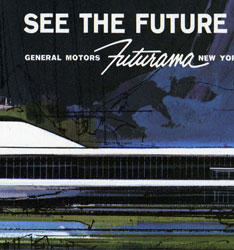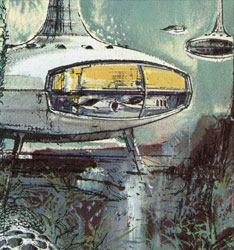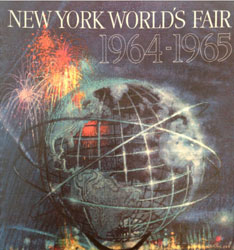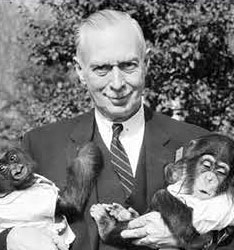
“... the Russians announced plans to convert the entire Kremlin into a great national museum. ...dare we fail to demonstrate to visitors in our capital the progress that has made our free Nation great?”
—Leonard Carmichael, Smithsonian Secretary, 1955
1964 New York World’s Fair
Though the New York World’s Fair of 1964 focused on the future and MHT looked to history, they shared a common theme of technological progress, played against the backdrop of the Cold War.
A highlight of the New York fair was Futurama in the General Motors pavilion. Fairgoers experienced the possibilities of a technological future where lunar rovers explored the moon and “Aquacopters” and atomic submarines surveyed the ocean depths. Futurama and other state-of-the-art display techniques developed for the fair challenged MHT’s new staff of designers to create equally exciting historical displays.
Addressing the immediate future, the U.S. and Soviet pavilions at the fair confronted the realities of the Cold War with competing visions of social and technical progress. Similarly, MHT’s founders argued that allocating Congressional funds to a national museum would counter Russian claims of priority in inventing most of modern civilization’s major technologies with exhibitions illustrating otherwise.
Scene from Futurama ride
"See how men may work, live, and vacation in a setting of breathtaking beauty—the ocean floor." Reproduced from Larry Zim World's Fair Collection, Archives Center, NMAH.




